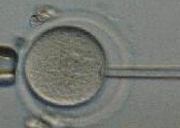155 animal-human embryos created in the UK – we think
 An apparently straightforward question to government last week (20 July) generated an apparently straightforward reply. Lord Alton asked how many ‘cybrid’ embryos (cytoplasmic animal-human hybrid) have been generated with eggs from non-human species in total.
An apparently straightforward question to government last week (20 July) generated an apparently straightforward reply. Lord Alton asked how many ‘cybrid’ embryos (cytoplasmic animal-human hybrid) have been generated with eggs from non-human species in total.
The reply was: ‘The Human Fertilisation and Embryology Authority (HFEA) has advised that the most recent information it holds shows that 155 embryos, defined as human admixed embryos by Section 4A(6)(a) of the Human Fertilisation and Embryology Act 1990, as amended, have been created.’
Lord Alton’s reaction was to describe this as ‘dabbling in the grotesque’ and a discredit to our country. Others questioned why this research has been hidden and secret. After my own initial concern that such a large number of highly unethical animal-human embryos have been created, for pointless research that will not produce any therapies, I spent some time trying to find out more about the funding, numbers and purpose for this research.
It quickly became clear that such questions are not easily answered by the official statistics, and there seems to be a murky mix of confusion and secrecy from which the true facts and figures are difficult to extract.
Let’s start with some of the genuine facts. First, it is now legal to produce these embryos. The passing of the highly controversial Human Fertilisation and Embryology Act in 2008 permitted the creation of animal-human cybrids after much debate and hype.
Second, three research scientists were initially licensed to carry out this research. Two abandoned their work after publicly funded research councils refused to back the studies. The third had his licence revoked in 2010. The reason given was that the project could not continue due to lack of funding (which is entirely unsurprising as there are no commercial benefits to be gained from this unethical and unnecessary research).
Third, the HFEA is responsible for granting (and revoking) licences for this research when it involves embryos. However it does not take the same role regarding eggs, either human or animal, so information on numbers of eggs collected and stored is far more limited and patchy.
To make matters more confusing now. The Independent ran two articles in 2009 stating that many more cybrid embryos were created – 278. That large number is naturally of concern, but also of concern is that the numbers don’t match the figure of 155 released last week. The Government has avoided answering that question.
Moreover, if all funding (apparently) stopped in 2010 and the licence was revoked from the only researcher, when were these 155 (or 278) embryos created? Were they all created before 2010? Or are they still being created? If so, by whom?
Then we get onto the eggs, not just embryos. Apparently 222 eggs have been used in attempts to create animal – human embryos. If so, only 155 embryos have resulted (maybe) so what were the remaining eggs used for? Have they actually been used or are they being stored?
The main messages to be gained from this do not lie in specific figures. This all simply confirms concerns that CMF and others have been voicing ever since the HFE Act Parliamentary debates.
First, the benefits from animal-human embryo research have been utterly over-hyped. For example, at the time of the debates, a letter was delivered to Tony Blair from 223 medical research charities warning that a ban on the creation of ‘chimera’ embryos would hamper efforts to develop effective treatments for many incurable conditions. The Association of Medical Research Charities, claimed that there was an overwhelming consensus about the need for such research among medical charities involved with financing studies into serious diseases.
Yet it was only two years later that all research was dropped due to lack of support and funding. The fact is, this research will never produce therapies or even, at best, useful research. Peter Saunders correctly predicted that such research would simply become a farcical footnote in history. The problem with this hype is that it falsely raised public expectations at the time. Geneticist, Dr Neville Cobbe, comments: ‘There was good reason to doubt whether the research would be successful, yet patients’ expectations were cruelly raised. A carrot of cures was held out when in all probability the process would never deliver a cure.’
Second, the way ahead lies with induced pluripotent stem cells and other advances in adult stem cell technology. Unfortunately, the result of overhyping benefits from embryo research has diverted resources away from the more productive areas of adult and cord blood stem cell research. Thus over the years, we have lost leading British adult stem cell scientists who have migrated abroad, blaming the UK governments obsession with embryo stem cell research. (http://www.cmf.org.uk/publications/content.asp?context=article&id=2185 )
Third, the glaring discrepancies in the figures issued by HFEA shows it is not fit for purpose when it comes to regulating the scientists. It is incapable of keeping accurate records and is unable to keep on top of what is going on in research, either with embryos or eggs. It is essential that research using human-animal embryos is far more tightly regulated than this. The problem is, who would regulate effectively instead? The report last week by the Academy of Medical Sciences hardly generates confidence in their willingness to set any effective boundaries for animal-human research, as this blog highlights.
We can still perhaps hope that these mismatched figures are simply the result of confusion, not conspiracy to hide anything. What is certain, however, is that although this research is legal in the UK, it is still immoral, unethical, medically unnecessary and pointless.




Leave a Reply
Want to join the discussion?Feel free to contribute!